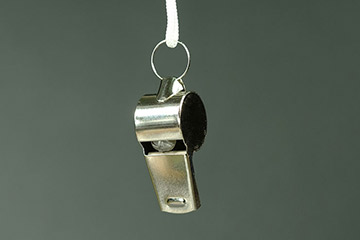Appealing against a decision made by the Danish Working Environment Authority - Is it worth the effort?
28 November 2014
Lately, the Working Environment Authority (WEA) has received a lot of negative publicity in the media due to the problems with the quality of its decisions. The criticism addresses, inter alia, the fact that approximately 60 per cent of the WEA's decisions which the companies appealed against in 2013 were either amended by the Working Environment Appeals Board or rescinded after the WEA's reconsideration of the case. This tendency in the appeal cases is not new, but has existed for a number of years.
Rather frequently, the reason stated for the rescission of a decision is that formal case management errors were made which were contrary to administrative law. An example may be that the problem underlined in the improvement notice is not sufficiently reasoned or that the company has not been heard in the case.
The WEA's first priority is to supervise companies' compliance with the Danish health and safety rules, including the Danish Working Environment Act. Legislation on the area is comprehensive and complex, which, inter alia, is illustrated by the fact that there are currently more than 100 applicable orders, which are issued in pursuance of the Working Environment Act.
A company's violation of the health and safety rules will often, in the first instance, result in the company receiving an improvement notice with a time limit, see Section 77(1) of the Working Environment Act. An improvement notice entails that the company may continue its day-to-day operations, but that it is obligated to find a permanent solution to the problem within the stated time limit. In the event of a critical working environment problem, the company will instead receive an immediate improvement notice, which entails that the problem must be remedied immediately.
Moreover, the WEA may issue an investigation notice, see Section 21 of the Working Environment Act, if the WEA has reason to believe that the working conditions in a company are not sound in terms of health and safety or as part of a general inspection of the conditions within a specific industry. If a company receives an investigation notice, it must take samples or conduct investigations or inspections in order to establish whether the physical or psychological working conditions are sound.
An alternative is the so-called "consultancy notice", see Section 77a of the Working Environment Act, where the company is obligated to use an authorised safety and health advisor to help solve the potential problem for which the company has received the notice.
If a company has received one of the above notices, the company is able to appeal against the decision, see Section 81 of the Working Environment Act. The appeal must be submitted to the WEA, who - if it chooses to uphold the decision after reconsideration - forwards it to the Working Environment Appeals Board. The WEA's reconsideration is as such also dependent upon the company appealing against the decision.
In this connection, please note that the deadline for appeals is 4 weeks from the time at which the company has received the decision. As such, the Working Environment Appeals Board will only in special circumstances consider an appeal submitted after the deadline, see Section 81(4) of the Working Environment Act.
As mentioned initially, something, unfortunately, seems to indicate that there might be a problem with the quality of the notices for which reason an appeal in certain circumstances may be in order. There may be heavy practical and financial costs involved when a company complies with a notice which is not correct.
The WEA's first priority is to supervise companies' compliance with the Danish health and safety rules, including the Danish Working Environment Act. Legislation on the area is comprehensive and complex, which, inter alia, is illustrated by the fact that there are currently more than 100 applicable orders, which are issued in pursuance of the Working Environment Act.
A company's violation of the health and safety rules will often, in the first instance, result in the company receiving an improvement notice with a time limit, see Section 77(1) of the Working Environment Act. An improvement notice entails that the company may continue its day-to-day operations, but that it is obligated to find a permanent solution to the problem within the stated time limit. In the event of a critical working environment problem, the company will instead receive an immediate improvement notice, which entails that the problem must be remedied immediately.
Moreover, the WEA may issue an investigation notice, see Section 21 of the Working Environment Act, if the WEA has reason to believe that the working conditions in a company are not sound in terms of health and safety or as part of a general inspection of the conditions within a specific industry. If a company receives an investigation notice, it must take samples or conduct investigations or inspections in order to establish whether the physical or psychological working conditions are sound.
An alternative is the so-called "consultancy notice", see Section 77a of the Working Environment Act, where the company is obligated to use an authorised safety and health advisor to help solve the potential problem for which the company has received the notice.
If a company has received one of the above notices, the company is able to appeal against the decision, see Section 81 of the Working Environment Act. The appeal must be submitted to the WEA, who - if it chooses to uphold the decision after reconsideration - forwards it to the Working Environment Appeals Board. The WEA's reconsideration is as such also dependent upon the company appealing against the decision.
In this connection, please note that the deadline for appeals is 4 weeks from the time at which the company has received the decision. As such, the Working Environment Appeals Board will only in special circumstances consider an appeal submitted after the deadline, see Section 81(4) of the Working Environment Act.
As mentioned initially, something, unfortunately, seems to indicate that there might be a problem with the quality of the notices for which reason an appeal in certain circumstances may be in order. There may be heavy practical and financial costs involved when a company complies with a notice which is not correct.






